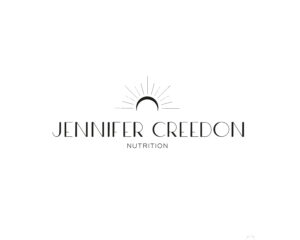Perimenopause and Menopause are important stages signifying the end of a woman’s reproductive years. Here I outline what both stages represent in a woman’s life and the important role a clean and healthy lifestyle can play.
What is the difference between Perimenopause and Menopause?
Perimenopause marks the body’s natural transition to menopause. It can start at different stages in a woman’s life but it’s estimated hormone levels begin to fluctuate around age thirty-five to forty. For some women, perimenopause symptoms manifest as weight gain, unpredictable moods, or low energy. When progesterone starts to decrease, women may experience night sweats, disrupted menstruation, poor sleep, and heightened anxiety. Lowered oestrogen levels may add hot flushes, vaginal dryness, poor memory and concentration, achy joints. Menopause is diagnosed when a woman has gone 12 months without a menstrual period. Women in menopause usually have low cortisol levels in the daytime, which can contribute to fatigue, whereas night-time cortisol rises, resulting in restless sleep and anxiety.
What role does a nutrient dense diet play in helping hormonal fluctuation?
A nutrient dense diet rich in fruit and vegetables supported by the correct herbs or supplements can be the best line of defence in this hormonal transition. Perimenopause can cause a metabolic imbalance in the body and affect cortisol levels, meaning women will find it easier to gain weight. A nutrient dense diet includes: Healthy fats (oily fish, seeds, nuts, avocados, coconut oil/butter, grass-fed meats, extra virgin olive oil), Magnesium (leafy greens, avocado, banana, figs, fish), vitamin D (spirulina, mushrooms, organ meats, fatty fish), Zinc (grass-fed beef, oysters, lentils), Iron (red meat, spinach, shellfish), B vitamins (root veg, leafy greens, fresh fruit, seafood).

What natural therapies can boost mood and alleviate symptoms?
The brain-gut axis is so important in day to day life and also in the treatment of hormonal fluctuations. Introducing the right probiotic and digestive enzymes can optimise gut health and help with weight management. Magnesium is great for heart and bone support whilst also aiding a good night’s sleep. Herbal supports which have been found to support symptoms include Maca, Black Cohosh and Dong Quai. Milk Thistle (Liver health), B Vitamins (in their active form), Rhodiola, Eleuthro (Adrenal support) Zinc and Selenium (Thyroid) are also recommended.
How can a consultation help with natural menopause treatment?
The first and most important step involves a hormone supporting dietary and lifestyle strategy, which can help tackle menopausal symptoms in a holistic, natural way. By following these strategies, you can reduce your symptoms, without the use of HRT.
During a consultation I take into account many underlying factors that may be contributing to your symptoms, such as nutrient deficiencies, microbiome health (dysbiosis, leaky gut etc), inflammation levels, thyroid, and methylation.
Please get in touch to find out more how I can support you to achieve optimal health during perimenopause and menopause.
